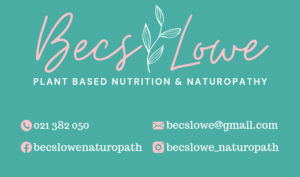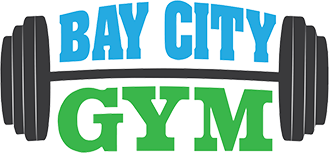Article by Bec’s Lowe Nutrtionist
The number of people adopting a plant-based diet (also known as a vegan diet), either exclusively or predominantly, or even those just trying to include more plants and less animal products in their day is increasing at a rapid rate.
Whether it is for personal health reasons, environmental reasons or animal welfare, statistics indicate that this is a trend that won’t reduce any time soon. This is a good thing considering that switching to a plant-based diet represents the largest single action a person can take to reduce their environmental impact and help reduce climate change.
In response to this trend, the production of plant-based meat and dairy alternatives is booming and restaurants and cafés are responding with more vegan options on their menus. It’s now easier than ever to move to a more plant-based way of eating.
Research has shown over and over again that a whole food, plant-based diet has a number of health benefits and can reduce the risk of chronic diseases such as cardiovascular disease, type 2 diabetes, cancer, and neurodegenerative diseases such as dementia. It has also been shown to help with weight loss, reduce inflammation and improve gut health.
So, what is a plant-based diet? Well, it typically means eating only plants and no foods from animals. It excludes meat, chicken, fish, seafood, dairy and eggs. Most vegans will also avoid honey.
Plant-based diets are rich in fruits, vegetables, whole grains, nuts, seeds and legumes. These foods are high in fibre and phytonutrients and low in saturated fats which is why they are great for heart health.
A plant-based diet can provide all of the nutrients a person needs but must be well planned to avoid deficiencies.
Some of the key points to be aware of when eating a plant-based diet include:
• Eating mostly whole and unprocessed foods from a variety of fruits, vegetables, whole grains, nuts, seeds and legumes will provide the most health benefits, while avoiding highly processed and sugary foods.
• Vitamin B12 is a nutrient that is only found in animal foods. Some plant foods such as Marmite, some cereals and nutritional yeast have been fortified with vitamin B12 however this won’t usually provide enough if you are exclusively plant-based. Therefore, you will need to include a B12 supplement.
• Iron from animal sources is easier to absorb than iron from plant foods. Therefore, on a plant-based diet you need to ensure you are eating enough iron-rich plant foods such as beans, lentils, chickpeas, tofu, seeds, cashews and leafy dark greens and pairing them with Vitamin C rich foods such as citrus, tomatoes, broccoli, red capsicum and kiwifruit to increase iron absorption. Also, avoid drinking tea and coffee with meals as this inhibits iron absorption.
• Omega-3 fatty acids are most well known as being found in oily fish such as salmon. They are a healthy fat that is also found in plant-based sources such as walnuts, flaxseeds (ground or oil), chia seeds, hemp seeds, hemp seed oil and seaweed. Some vegans choose to take an algae oil supplement instead of fish oil to get the required amount of omega-3 fatty acids each day.
• Zinc is nutrient that is typically higher in animal foods and shellfish, so making sure to include good plant zinc sources such as pumpkin seeds, hemp seeds, chickpeas, beans, lentil, oats and nuts is important. The food that provides the highest zinc content is oysters, which although not a plant, some people choose to include in a vegan diet as they don’t have a nervous system and so can’t feel pain. They also have a very low carbon footprint when farmed, unlike fish.
• Iodine is an essential nutrient lacking in NZ soils and is therefore added to commercially prepared breads. If you are not consuming bread or dairy, eggs and seafood, which are the main sources of iodine, then you can get it by consuming seaweed (nori, kelp, wakame, kombu) or by using an iodised salt. You only need a small amount.
• Include calcium rich foods such as un-hulled tahini (sesame seed butter), almonds, legumes, leafy green vegetables, seaweeds, calcium fortified plant milks, tofu and tempeh.
• New Zealand soils are also low in selenium, another essential nutrient. Just two Brazil nuts each day will supply you with the required amount of this important nutrient.
• Vitamin D is typically found in animal foods however getting around 15 minutes of sun exposure on your skin each day is the best way to ensure good vitamin D levels (avoiding sunburn and without sunscreen). But if this isn’t possible a supplement may be required on a plant-based diet, especially during winter.
• Ensure you are having a good plant source of protein with each meal such as legumes (lentils, beans, peas), nuts, seeds, tofu, tempeh, edamame, seitan, and quinoa.
Try these simple ways to move towards a more plant-based way of eating:
• Switch cow’s dairy milk for unsweetened plant milks such as oat, soy, almond or coconut.
• Replace meat or chicken in meals with tofu, tempeh or TVP (textured vegetable protein).
• Build a meal around beans, chickpeas or lentils such as soups, stews, salads or curries.
• Think of meat as a garnish rather than the main part of your meal.
• Educate yourself on the impact that eating animals has on the environment and your health by watching documentaries. Some good ones to start with are:
Seaspiracy
Cowspiracy
The Game Changers
Milked
What The Health
Forks Over Knives
David Attenborough: A Life On Our Planet
If you are thinking of adopting a plant-based diet, you may want to enlist the help of a professional, especially if you have existing health conditions, food allergies, are pregnant or trying to conceive. This will help to make sure it is well balanced and delivers everything you need with supplementation where required.
So now you know the benefits of a plant-based diet and how to ensure you get the nutrients you need, even if you choose to add just one plant-based meal to your day or your week to start with, you are moving in the right direction towards better health for you and our planet.
Eat more plants,
with love,
Becs



